
Reading should be the cornerstone activity of all those who proclaim they want to be serious writers. I know this might seem like a “No duh” statement, but sadly we live in a world where even the obvious requires unpacking.
Believe it or not, I love getting comments for more reasons than my own ego (though it is a real boost, not gonna lie).
The main reason I encourage comments is because—believe it or not—I cannot think of everything. I need to know what Y’ALL need to know.
I can’t do that unless you tell me. Mostly because God refuses to let me have mind-reading abilities. Something about blah blah Kristen already drunk with power blah blah humility *rolls eyes*. Then those pesky restraining orders keep me from sneaking in your houses and rifling through your notebooks.
#FunKillers
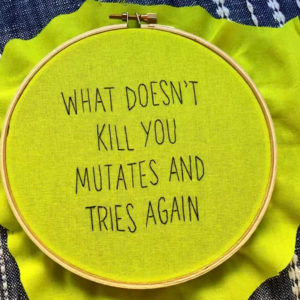
Today’s post comes thanks to a very thoughtful commenter, Harshi S.
I love all your articles and I think reading them made me a better writer and reader/consumer of fiction (and nonfiction) with dialogue. I would like some advice on how to take notes on books I read and media I consume to learn more about writing before I start writing. Also, is it good to read books primarily from the genre(s) one is interested in writing in to learn those specific techniques after learning general writing skills?
Harshi S. (Commenter)
Excellent questions.
Reading Required to Be a Good Writer
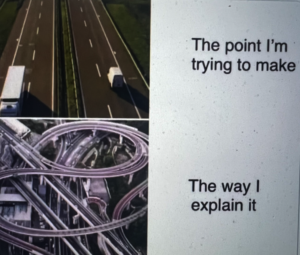
Before we dive into HOW to read, I’m going to unpack what should be the obvious. Feel free to SKIM because (refer to meme above).
Good writers are prolific readers. I can already hear some of you railing at the heavens that I would even devote space to stating this. But, I am pretty sure y’all have not been to nearly as many conferences as I have.
Since 2008, I’ve been very blessed to be a staple speaker and regular keynote at writing conferences all across the United States and abroad. I’ve also attended conferences as a mere writer.
This means I’ve met a lot of new writers who were all (also) hopeful they will be the next (INSERT MEGA SUCCESSFUL AUTHOR HERE).
What never ceases to floor me is how many I’ve met who would openly and often emphatically admit they a) rarely read b) never read c) don’t like reading or d) a, b, and c.
*silent screams*
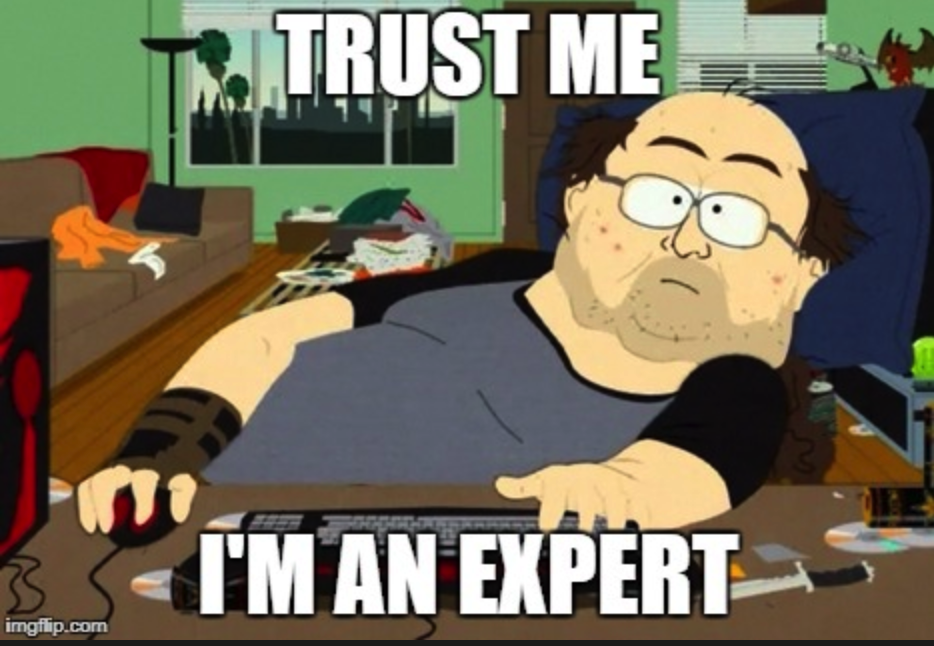
Would anyone want to go to a brain surgeon who just wanted the fame and lifestyle of a surgeon, but didn’t want to bother taking Gross Anatomy? Who’d never stitched a boo-boo let alone sawed open a skull and removed a tumor?
They just REALLY like brain surgery…”in theory.” Don’t worry! They’ve watched thousands of hours of surgeries, so they just know they’ll be the best (even though they hate needles and the sight of blood renders them unconscious).
Any takers?
Why would we BUY a book to READ from an author, who themselves, declares they don’t like to read?
I hope I’ve made my point.
As an editor of over twenty years, I promise I can tell an avid reader from a non-reader within a few sentences. Yes, it is that obvious. Not fooling me, or an agent, or an actual reader (who you want to spend MONEY on your book).
Reading Makes You Smarter
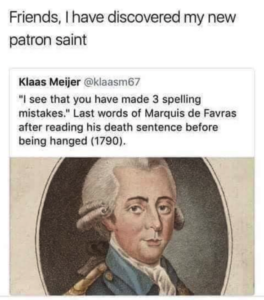
There’s quite a large body of scientific evidence demonstrating that humans are a story people. From an early stage in life, we have an innate sense of plot, that stories have a beginning (Act I), a middle (Act II), and an ending (Act III).
Don’t believe me? Read a bedtime story to a four-year-old and try to stop short. You will not win. Why? Because said little kid will pester to know how the story ENDS. But, just because this is ingrained in us, doesn’t mean we can’t overthink it all away.
***More on this in a bit.
Everything we do in life impacts our neural pathways. If we envision the brain like a tree that is always growing and changing, wilting and dying, it starts to make more sense.
Neurologists have a saying, “Neurons that fire together wire together.”
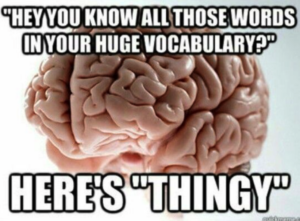
The more we use the neural pathways required for reading/storytelling, the stronger those connections (branches) become.
Glial cells, often referred to as the “gardeners of the brain” wander about fertilizing pathways (branches) we use A LOT. Meanwhile, the same glial cells do NOT fertilize branches we fail to use. In fact, they go so far as to completely prune away and discard those “abandoned” pathways (branches).
Don’t believe me? Without googling:
What was the one Roman invention that forever reversed/nullified Carthaginian dominance of the seas?
Convert 190 pounds into kilograms in your head.
Define sobriquet.
We’ll wait…
Or not. Kidding!
Maybe some of you knew these answers but many won’t. Why? We likely knew trivia like this at some point. Thing is, we “learned” it long enough to score well on the test.
Unless, after that point, we stepped into hobbies or professions that would have regularly watered and fertilized these branches of knowledge, the glial cells tossed those factoids into the cerebral mulch pile.
Clearly our Harry Potter Trivia needed fertilizing and the Pythagorean Theorem mixed with a little “What was the theme of Lord of the Flies?” is PERFECT!
Oooh! I’m a Griffendork!
Spirits Wired for Story

I’ve already mentioned how humans have an innate sense of story. This is our READER. They are on the consuming end, not the creating end (which is a WHOLE NEW ball of wax…on fire…that wants to explode and kill you).
We (writers) are the architects, they (readers) are those who use the building. And yes, I am mixing metaphors more than a 90s DJ, so roll with it.
Aestheticism must align with pragmatism. For more on this, I recommend my recent post Pitch Your Story in a Pinch (ONE Sentence).
When we read prolifically, our brains wire for story. We don’t need to think so much about the pieces: Normal World, Inciting Incident, Turning Point Act One, so on and so forth.
Why?
Because it is like learning music by ear. We instinctively sense one part is missing, another part has come too soon, another is taking too long, the work is incomplete, etc.
For the record, READERS (especially voracious readers) sense this. They just don’t always have the vocabulary to say WHAT bothered them. Instead, you’ll hear things like:
The story was too confusing.
I just couldn’t get into it.
It was boring.
The story dragged.
I got confused.
Plotters, Pansters, & Plotsers, Oh MY!
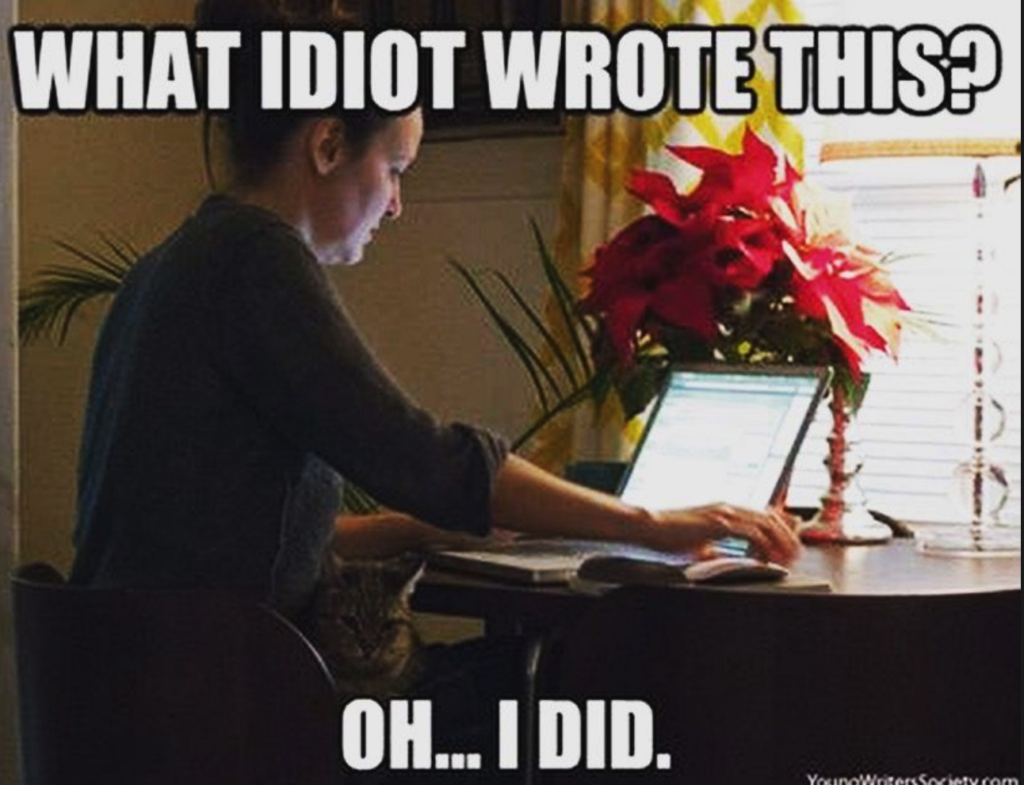
This is why, in my POV, there is really no such thing as a pure pantser. Pantsers don’t outline or plot ahead of time, but that is because they’re the equivalent of a person who’s learned to play an instrument by ear.
They might not need metaphorical “sheet music” (yet the inability to READ sheet music “could” be problematic).
Conversely, those who strictly outline and plot ahead of time are like musicians who embrace formal training and can not only read the sheet music, but write it, improve it, change and modify it.
Neither is better, but I will warn that a little sheet music is good. I am a plotser. Learned by ear, but I’ve learned to make a basic (mutable) plan and scribble the notes as I go.
Pantsers can end up in a sticky wicket during revisions, whereas pure plotters need to be wary of being too rigid. The “boys in the basement” might be trying to send a signal that they’ve come up with something TOTALLY ORIGINAL and better than what you originally planned.
What Reading Does for Writers
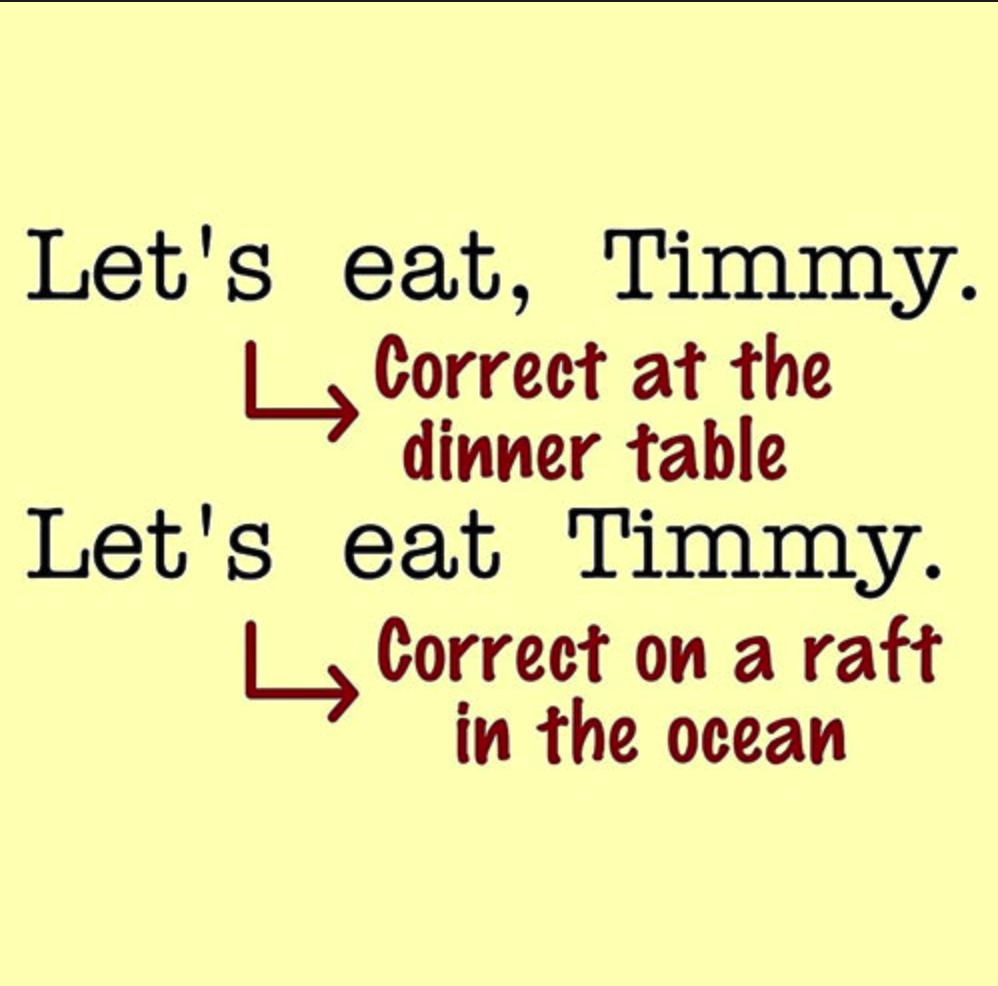
Reading will wire your brain for story. Plotting will be easier because you’ll sense when something is wrong. It will hit like a note off-key. Same with grammar. It will sound incorrect.
Writing a novel is HARD. We have to create a structure capable of maintaining interest and momentum over the span of 60K-180K words. To accomplish this, the more tools we have in our toolbox, the easier this will be.
Reading improves your vocabulary, and broadens your literary lexicon. Gemstones aren’t totally BAD, but not entirely unique. Emerald eyes, ruby lips, sapphire skies are literary low-hanging fruit. Are they bad? No. But if any Joe Schmo sitting at the hotel bar can write the same descriptors, and we are supposed to be the wordsmiths?
Just leaving that there.
There are technical aspects of writing that we need to learn to excel at our craft. Things like POV (Point of View). Which one is the best? Why? How does it serve our particular story? What about DEEP POV? Why do readers LOVE it?
What is a scene versus a sequel? This will impact PACING. Can setting be more than a weather report? Yes. The answer is YES.
Why are flashbacks a sign of weak writing, yet many of our favorite stories seem to have “flashbacks”? The reason is these works we love DO NOT have “flashbacks,” rather the author is using time as a literary device (non-linear structure).
We also learn about each genre, how they differ, and what the reader expectations of that genre happen to BE. Genre is going to be CRITICAL when it comes time to either landing an agent or selling/marketing your book. WHO are YOUR readers?
What KIND of Writer Do You Want to BE?
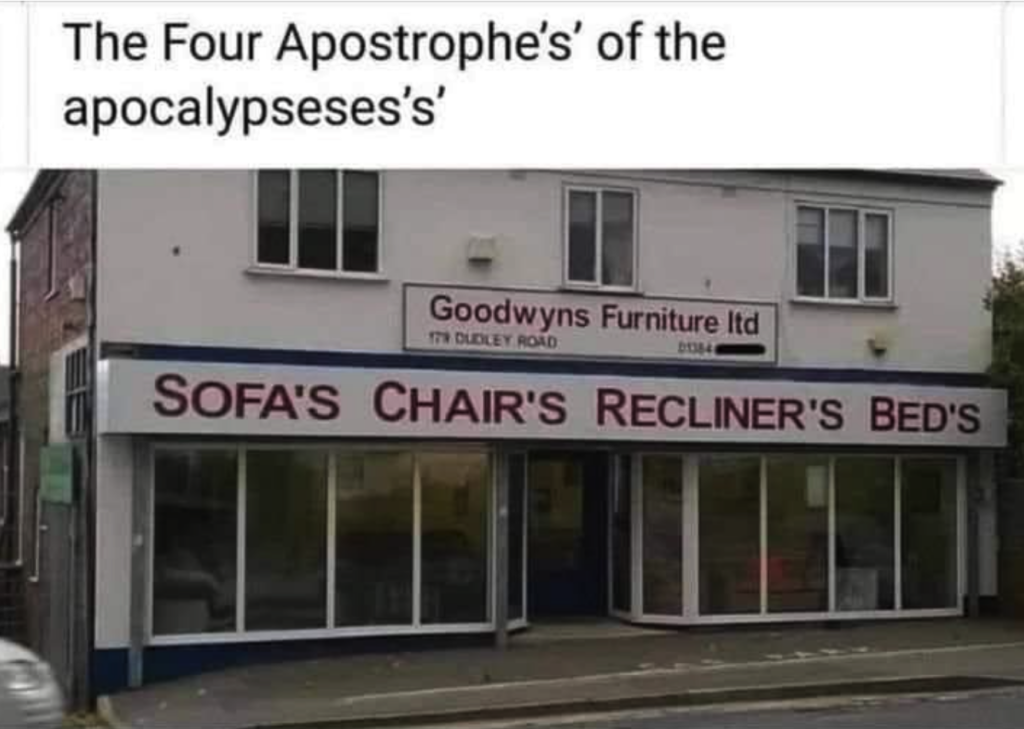
When I finished my first “novel” (the 178,000 word TOME I keep in the garage because it chews on the furniture and refuses to be potty trained), my mom read it. All my friends thought it was the greatest thing ever, but my mom–bluntness also her superpower–simply asked me this:
Kristen, what kind of author do you want to be?
Years later, when I would blog, I’d joke that the rest of her sentence was “…published or unpublished?”
Yet, that simple question changed everything. There are all KINDS of writers. No one genre is better than any other, merely different.
I know the literary people are screaming at the screen, but good luck making a living. If you can live off awards and accolades, be my guest. I WISH I could write cozy romance because Hallmark is always hiring and romance is a multi-BILLION dollar industry.
Reading Helps us EVOLVE
When we read a lot of different types of fiction and voices, we can better figure out where we fit in the larger scheme of things. And this is NOT set in stone.
I’ve run the gambit from NF, to writing feature articles in a major business magazine, to almost 2,000 blogs, to romantic suspense, a romantic-thriller-suspense, and (if all goes to plan) am releasing a horror anthology with Troy Lambert on October 24th.
***It isn’t blood and gore. Think more Hitchcock meets Black Mirror. It is technically action, horror, noir.
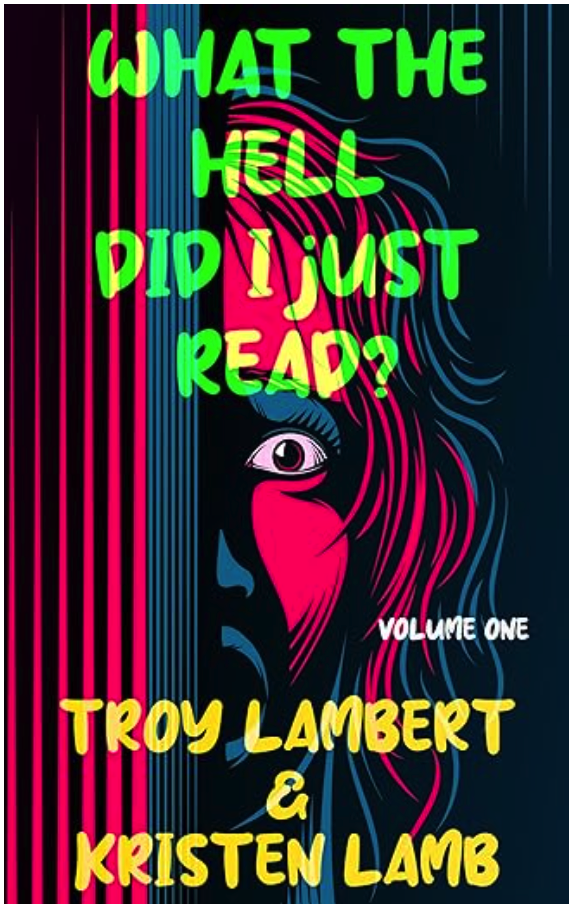
***According to statistics I just totally made up, studies show that people who are unusually intelligent, funny, and good-looking pre-order Kristen’s books.
The point I am making, is that, unlike the old publishing paradigm, we no longer have to be married to one genre until death do us part. Our careers can be far more mutable and more elastic than ever before. Which YAY! But also YIKES!
Reading Develops Voice
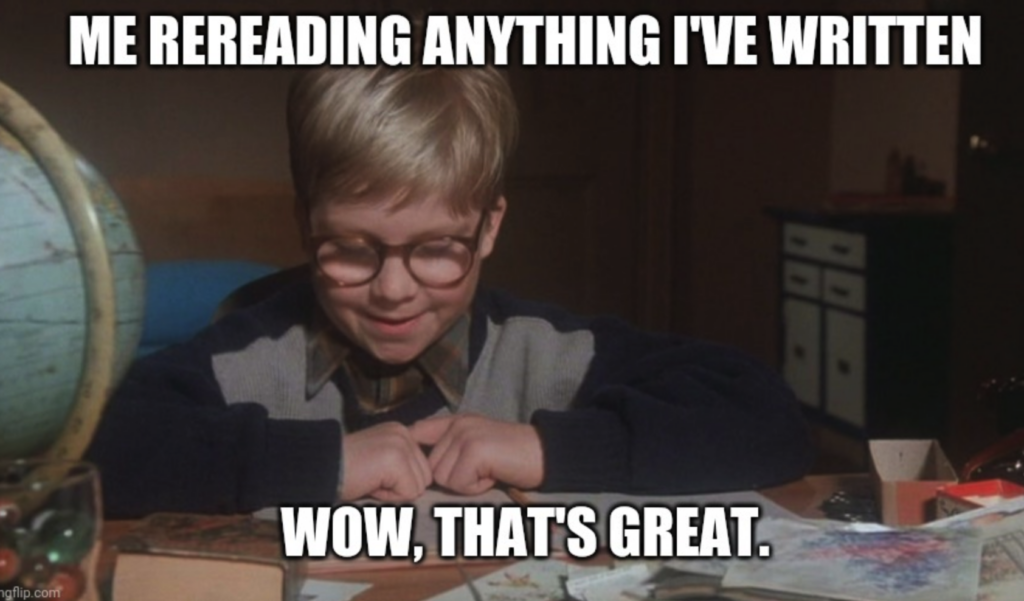
I believe every teacher, blogger, publishing pundit at one point in time has probably tried to define “voice.” Even ME. In short, no one is going mistake Faulkner for Hemingway, or vice versa.
How they write, the words the choose or leave out, the way they deliver the story is as unique as their fingerprints.
This said. I was in my church choir enough years that I am a passable singer. No one will mistake me for a cat caught in a screen door. This, however, does NOT mean, I am ready for Carnegie Hall and to sing backup for Adele.
Why? I never worked on it or trained.
Harshi asked if it was best to read entirely in our own genre or to read a lot of different genres.
Yes and yes.
If we read a lot to begin with, we’ll have a better understanding of which genre we at least want to begin with. Even if we already know which genre we want to write, we’ll have a deeper reservoir to draw from.
Some of the most groundbreaking musicians were “cross-trained” (Meatloaf was a trained opera singer. Whitney Houston, Justin Timberlake, and John Legend started singing in church). I could go on, but y’all get the gist.
What made many of our most memorable musicians stand apart is how the drew from other kinds of music, weaving elements of Classical, Jazz, Gospel, Soul, Rap, or even…sea shanties.
*Nods to Dropkick Murphys*
Audiences are always looking for the “same but different.” That is going to be easier to do if we’ve curated a rich, broad pallet.
Like how SNL writers married a sappy teen coming-of-age romance with…WAFFLE HOUSE.
WARNING: DO NOT DRINK HOT LIQUIDS WHEN WATCHING!
*giggling*
Go Wide, then Zoom IN
There is no right or wrong way to read (so long as you READ), so this is all my opinion. Once we sample from a bunch of other genres and fill our reservoir, then I recommend reading the genre you want to write. I do both all the time, switching back and forth.
I just finished rereading The Exorcist (horror) and Shutter Island (Psychological Suspense) and am currently reading St. Augustine’s City of God (NF).
Reading all that is in the genre you want to write will help you understand genre expectations.
I cannot count the number of times writers have sent me pages and they were SO FAR OFF what genre it was, I immediately knew they’d never read that genre at all. Because, had they read that genre, they would have (or at least should have) known better.
If you hand me pages to your mystery, it better BEGIN with a crime of some sort or it is NOT—by definition—a mystery.
I once had a writer hire me because she was getting slayed in reviews and didn’t know why. When I read her work, it was well-written, but she had it listed as a ROMANCE. In romance, you better have an HEA (Happily Ever After) or the more contemporary HFN (Happily For Now).
If guy and gal DO NOT end up together in the end…that is Women’s Fiction.
She pulled the title, redid the cover and re-listed in the correct genre and everything changed.
Hallmark is Romance. Lifetime is Women’s Fiction.
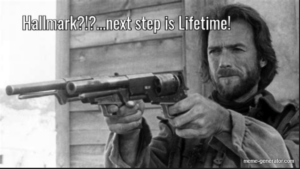
When you read as much as you can in your genre, not only will you be able to see what readers are wanting, but you might even spot what they never KNEW they wanted until YOUR story.
For instance, I did this with my romantic-suspense The Devil’s Dance. I wanted to write a book someone would inhale in a day or three, not win a Pulitzer. Additionally, I wanted the humor of a Janet Evanovich with the grittiness of a Dennis LeHane.
Since I was writing about the cartels, that is a rough, terrible and yet timely subject. But it is also DAAARRK. Could I balance out the horrible stuff with a funny, relatable, fish-out-of-water character?
Because I’d read ALL the suspense thrillers I believed I could. I spotted what I felt was a gap…then filled it by writing a book I wanted to read (but that didn’t exist/or I couldn’t find).
Reading and Taking Notes
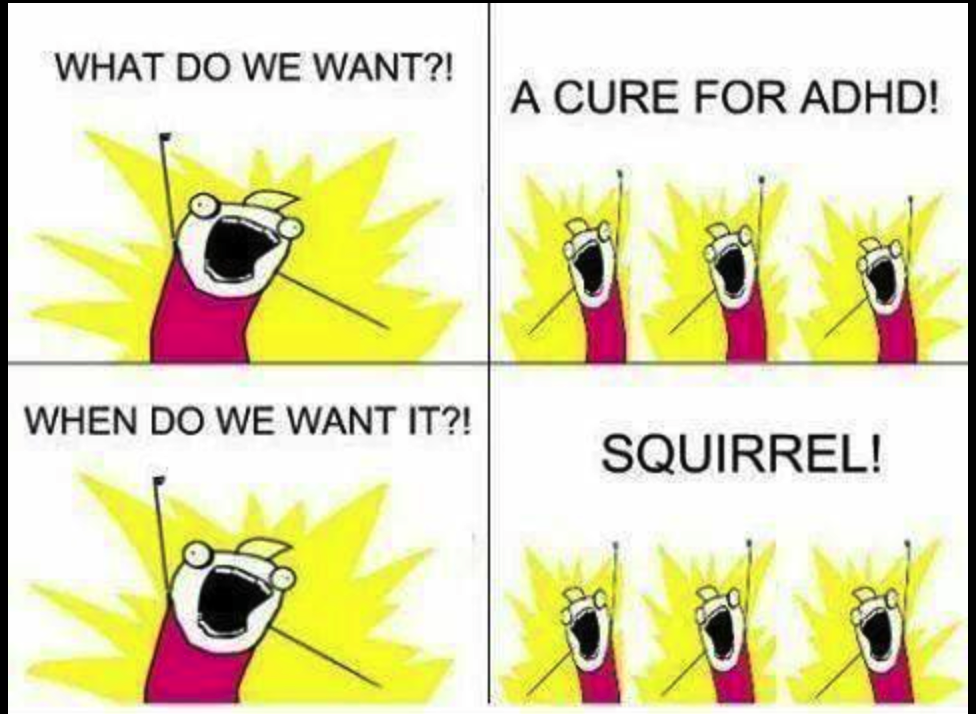
This is going to be completely up to you. My dear friend and partner in mayhem, Cait Reynolds, tells me I am not allowed to use Excel unless I spread a salt circle first. If California breaks off into the ocean one day…um, sorry about that.
My other close friend, Maria Grace and Queen of the Spreadsheet, once saw all the screenshots on my desktop…and I thought she was going to fling holy water at me.
I keep a notepad on my phone because I listen to a lot of audiobooks en lieu of reading. I’m WAY too ADHD to sit still too long.
When I hear something amazing (a factoid, a new word, a turn of phrase) I pause and type it in the app. But, I also write notes on the backs of junk mail, my HAND, random receipts, and notebooks with only the first five pages used.
I buy audiobooks (awesome royalties to the author) and then buy a used paper copy of the same book (no royalties to the author, but I color, underline and dog-ear it to death).
For the record…I still want my stapler.
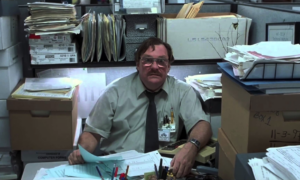
Additionally, I study movies and series in film. I literally sat with paper and pen and watched the entire Stranger Things series beginning to end and wrote out every single plot point on the micro-scale and the macro (series as a WHOLE).
But that is ME. You be YOU. Everyone learns, remembers, and processes information differently. There is no one RIGHT way to take notes when reading, so long as you “take notes” when reading (even if those are mental notes).
Learn by DOING…
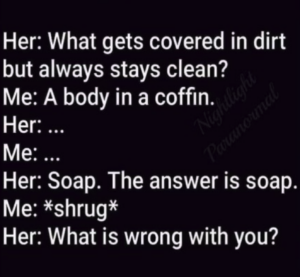
In the end, we learn by DOING. Yes, I want y’all to read before, during and after a book. Read everything you can. What did you LIKE? If you couldn’t put the book down, HOW did the author hook you?
Everything is valuable!
Yes, even “BAD” books. If a book really frustrated you, WHY did it frustrate you?
Did the author fail to research properly? What did they miss? How can you do better? Were the characters irredeemable? If so, why? Were the characters too dumb to live? If you think so, WHY?
Yet, ultimately, we don’t want to be like the imaginary surgeon I opened with. Theory is good, but we have to put it into PRACTICE. Every amazing author was once a beginner, too. The more we write and apply what we learned via reading the better.
While reading is critical, it can also fall into what I call “productive procrastination.” Ultimately I don’t care HOW y’all do it so long as you do it. Respect the profession/craft/art enough to immerse in it.
Thank you, Harshi S. for such a great question (I will email you something special). And THANK YOU readers for being here and sticking it through, even if you are here for the memes.
I care enough to send steal only the very best xoxoxoxoxo.
What Are Your Thoughts?
What do y’all think about “writers” who brag about not reading? I think they believe ChatGPT is going to save them and make them millionaires, but that is a whole other blog.
How do YOU learn from what you read? What are some tips and tricks for learning, making notes, keeping up with notes? Clearly, I AM NOT the person for this advice.
I LOVE hearing from you! Obviously.
To prove it and show my love, for the month of OCTOBER, everyone who leaves a comment, I will put your name in a hat.
***I actually have landed agents for people who’ve won this contest. Agents like me because I make their lives easier.
If you comment and link back to my blog on your blog, you get your name in the hat twice.
What do you win?
The unvarnished truth from yours truly (and maybe even time with an agent).
I will pick a winner once a month and it will be a critique of the first 20 pages of your novel, or your query letter, or your synopsis (5 pages or less). People with superlative writing, I (with your permission) have been known to pass you onto an agent.
Anyway, I look forward to reading your comments and your writing!








16 comments
Skip to comment form
Clears throat. ‘Listens to audiobooks and takes notes.’
Me, goes to Amazon and reads the first page.
Goes, Wow!
Looks for Kirsten’s audio version.
Glares at Kirsten’s photo & mouths ‘When?’
Author
Yeah I know. You really need a professional for the audio. I tried recording it myself and NOPE.
I want the other two books out before I put out the money for that. Audio is a major investment. And YES the other two have been plotted and partially written just 2020 has lasted 75 months thus far….
{Grits teeth.} If I weren’t launching, I’d be hunkering down on #1!
I am sharing your article with the other Underground Authors. We are writing sequential books about a fictional town in the TX hill country known as Magnolia Bluff. We all read each other’s material and help each other market our books. Some of our books are cozy, mine is dark and dirty. So your articles sing to me. I love your humor, and I always learn from you. Your offbeat humor will resonate with more than a couple other authors. Thanks for the smiles and the lesson.
We are so lucky as writers. We learn and improve our craft by reading!! I agree with all of this. In fact I found a dog eared copy of Lord of the Rings at a book exchange at a hotel in Scotland. After reading it, I was inspired to rewrite some of my WIP and continue writing it. Reading a classic from time to time should be a requirement for all authors, no matter what genre they write in. (Yes, I took notes)
You are splendid! You are stellar!
This is going in my cache of “read in a regular rota” (ah! new label – RRR) … anyway, in with other posts & articles I read like every month or so.
The sheet music vs. by ear metaphor was a brain cracker (in a really good way).
Thx! All blessings to you! 🙂
Thank you for this article, brilliant as always. I find reading a book more than once (and especially at different times throughout life) a good way to get really close to a book. I try to think about books like I’m back in my undergrad English lit degree; trying to think critically about the plot, the characters and themes; and how it all hangs together. And I also enjoy writing a quick review on Goodreads to wrap up my reading of a book, and seeing how I can sum it up in a paragraph or two.
I’ve always been a reader. When I started writing, I found I was dissecting every book I read, doing exactly what you said you do. I thought about what worked, what didn’t, what descriptions grabbed me and what parts I skimmed over. I love literary fiction but doubt my own writing will ever meet that level of perfectly drawing the reader into the scene through the protagonist’s eyes.
I loved this article and your article on POV, especially the point on “You” using the second person to make readers uncomfortable. I started reading The Time Machine this weekend and love all the new words and the nameless characters. Also I live on a street named Richmond just like the time traveller; I also plan on reading broadly because of this article and because I do not know which genre I will write.
Please don’t use NF without defining it. Not everyone at 9:00 in the morning is going to translate it into non-fiction as if it’s a genre they should have heard of.
I’m stealing the “When do we want it-Squirrel” cartoon and putting it on Facebook. I’m crediting you since you didn’t cite a reference to a creator. If you get tons of email demanding who did it for you, blame your lack of a citation.
And please use a salt circle around your spreadsheet computer. Otherwise, I’m going to have to make a mint buying future Nevada oceanfront and blame you for my wealth!
My technique to learn from reading is to keep rereading it. Anything I want to learn from is worth rereading. Even Austin Camacho’s submarine novel where they enter a torpedo tube and shoot themselves out of the tube FROM THE INSIDE. (For the record, there are CONTACTS to program your loaded torpedo inside a torpedo tube and links to spool out the communications wire carried within the torpedo on wire-guided torpedoes, but NOTHING for the torpedo to use to open the outer door and fire compressed air behind the torpedo to pop it out the tube. And the back end of a torpedo tube SEALS TIGHTLY so the very high pressure seawater from outside the sub can’t come in: you CAN’T close it from inside the tube. The sealing handle is on the outside on the back of the torpedo loading door.) Also, the only place high-pressure steam lines run inside a submarine are FROM THE REACTOR TO THE STEAM TURBINE. NOT up front to the control room. And also for the record, you can’t shoot a high pressure steam line with a pistol bullet and get it to do anything. It’s designed to hold high-pressure steam holding enough energy to blast the submarine forward at speeds few surface ships can manage, no puny little handgun bullet is even going to dent it. Go ask a steamfitter about high pressure steam lines in power plants. Those lines aren’t going to fail in decades of use. If they did, they’d put power plants far away because of the danger of their spontaneously exploding and leveling multiple blocks of the city they’re in. Not to mention torpedo outer doors don’t look like Venetian blinds, and if they did, the first torpedo fired through them is either going to stop right there or remove them so they no longer work.
Thank you, Kristen. Now I have to go find that POV article cited in another comment.
-tc
Author
LOL, duly noted on the NF (non-fiction). As for the cartoon, it is courtesy of Hyperbole and a Half. When I found it, it wasn’t cited and had to dig. It is in the meta-data for the image. But now you have the proper credit.
Thanks for the thoughtful comment and YEP! You definitely have Writer Brain, LOL. I hope you enjoy the other posts. I’m going to compile the best into a book(s) for easier reference.
This may sound totally old by now but… how does someone retrain their writing skills after a very long hiatus? (Think major life changes over about 7 years.)
Author
Depends on what genre you write. A good way to get in the habit, if you can do it, is hop in over at WANATribe. We run writing sprints every day, M-F, all year long and have for going on 9 years. You can hop in for a sprint and see how much you can accomplish with that focused time. We set the timer for about 50 minutes, then GO. Report back waht you managed to do. You wouldn’t be alone and you’d have peer pressure.
NaNoWriMo is good if you want to jump all in.
I always recommend a blog (yes, even if no one reads it), because it trains self-discipline and trains OUT perfectionism.
I am always slightly appalled by people who tell me they don’t read. I can’t think of any writers who’ve said they don’t read, but I’m sure what I’d think is, how is that possible?
So many people say to me (after they find out I write novels), “I have a good idea for a story, you should write blah, blah, blah” but the worst is “where is it published?” This points to the split-personality of writing: crafting a good story is one side; the other is the business of writing/publishing. Both are hard. Both are different beasts. But I agree with you 100% – if you don’t read, how can you write what someone else wants to read? You won’t know what’s already been written; you won’t get how to nuance your writing. You won’t know a lot of things! Reading arms me with all sorts of facts (some entertaining, others are what I call ‘useless facts’ that come in handy at dull parties when I say “Did you know…” 🙂 I should blog about some of the random facts that stick in my weird writer’s mind….
Thank you for this. I am going to resurrect my spreadsheet and transfer my iPhone notes into it. As soon as I finish this chapter…